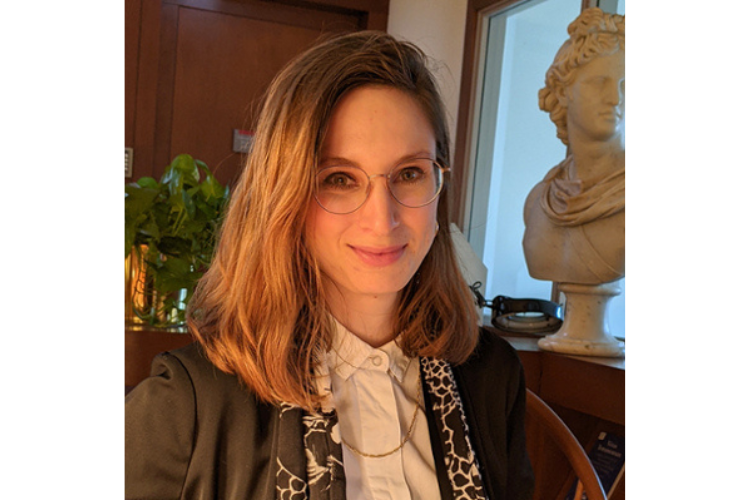Q & A with Dr. Tamar Menashe

In the fall of 2023, Emory’s Tam Institute for Jewish Studies and the Department of History welcomed Dr. Tamar Menashe as a Jay and Leslie Cohen Assistant Professor of History and Jewish Studies. Dr. Menashe completed her doctoral studies at Columbia University in 2021, followed by a fellowship at the Katz Center for Advanced Judaic Studies at the University of Pennsylvania. Her research examines minority-state relations and the legal cultures that minorities develop in the course of empire and state-building processes. A native of Haifa, she studied in Spain and Israel before coming to the US.
What are your primary areas of research? When and how did you first become interested in these particular areas?
I study the intersection of Jewish history, legal history, and gender history in the sixteenth and seventeenth centuries. I’m currently working on a book project that looks at Jewish litigation before the Imperial Supreme Court in Germany, in what was the Holy Roman Empire. Jewish women’s litigation takes a central stage in this project. I’ve always drawn on legal sources to study Jewish social and gender history, but it took an internship in a human rights organization for me to understand my desire to study legal sources to engage with legal history. Then, while doing research in Germany during my first summer as a doctoral student at Columbia University, I became aware of the vast cache of the Imperial Supreme Court that includes some 75,000 to 100,000 court records from 1495-1806. It was clear to me that I had to explore whether and how Jews interacted with this highest court of appeal of the Empire, what their relation was to the Empire, and how the court handled their cases. At the time I had no idea that during the course of my research I would uncover exceptional human stories that Jewish women and men brought before this court.
What have you enjoyed most about your time at Emory so far?
The students are wonderful. They are willing to explore complex and seemingly distant topics with an astute eye, and they draw connections from the past to the present. I also enjoy getting to know my new colleagues. Staff and colleagues in both Jewish Studies and the Department of History have been very welcoming, and the beautiful campus is a treat as well!
What is your teaching philosophy? What do you hope students will appreciate most when taking one of your classes?
I mainly teach medieval and early modern history, roughly from around 1000-1700, and since this is such distant and unfamiliar territory for many students, I want to help them gain an appreciation of these eras and see the roots of notions and structures that are still prevalent in today’s society. To handle this challenge, I often approach the classroom as a lab where students explore historical questions together and produce knowledge through the study of historical sources: students tease out human stories from these sources and situate them in broader cultural and societal contexts; and they draw connections to contemporary society and compare the differences. I also try to engage students through first-hand encounters with historical sources that pertain to our discussions, for example, via study sessions at the Rose Library which holds Emory Library’s special collections.
What attracted you to seek out a position at Emory?
The Tam Institute for Jewish Studies constitutes one of the most vibrant interdisciplinary centers of Jewish Studies in the country, and the Department of History has pioneering faculty in legal and gender history, both areas that I research and teach. I am excited to have become a member of both of these communities!
What other kinds of activities do you enjoy? If you had an extra day in the week, how would you spend that time?
For many years I learned to play the oud, which is an Arab string instrument, but I’m out of practice and would love to get back to playing it. I also love hiking and would love to explore nature in and around Atlanta.
Published 3/19/23